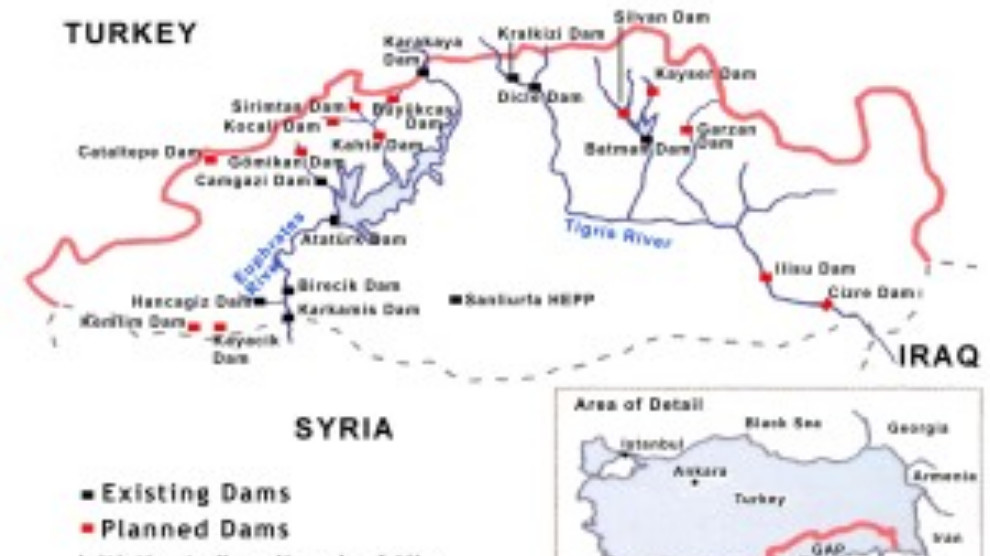Call to join 3rd Global Day of Action to defend Hasankeyf
On June 7 and 8 actions are planned in dozens of cities in Turkey and across Mesopotamia.
On June 7 and 8 actions are planned in dozens of cities in Turkey and across Mesopotamia.

The Initiative to Keep Hasankeyf Alive and the Mesopotamia Ecology Movement issued a call to movements and activists worldwide to join the 3rd Global Day of Action for the defense of the 12,000 year old town Hasankeyf and the Tigris River on June 7 and 8.
The call said: "The Turkish government announced recently that on 10 June 2019 it will start filling the Ilisu Dam reservoir. On 15 May, 2019 more than 100 civil organizations from Turkey, Iraq, Iran and other countries of the world released a statement calling on the Turkish government to stop the destructive Ilisu project and initiate a new process in the Tigris Valley. They also called on the civil public to act against the flooding of the Tigris Valley, which would also cause grave damage to downstream regions in Syria, and particularly in Iraq. If completed, the Ilisu Dam will be an incomparable social, cultural and ecological disaster for a big part of Mesopotamia!"
The call confirmed that on June 7 and 8 actions are planned in dozens of cities in Turkey and across Mesopotamia.
"You are invited - said the call - to organize a public action in your city or country against the Ilisu Project in solidarity. The demands could target the Turkish government, the Austrian company Andritz, which is leading the Ilisu Project consortium, and request the Iraqi government to urgently act against the impending desertification of its region, a matter on which it is strangely silent.In comparison to former Hasankeyf action days, this time we plan to broaden the variety of action types, including particularly artists. In around one week we will inform you with proposals."
Background
Since its initiation the Ilisu Dam and Hydroelectric Power Plant Project is highly controversial both at the ground at the Tigris in the Kurdistan region of the Republic of Turkey and in whole basin up to the Mesopotamian Marshes in South Iraq. Recently the Turkish government announced recently that on 10th June 2019 it will start filling the Ilisu Dam reservoir which is nearing completion. This paper gives an overview about the expected grave social, cultural and ecological impacts and the ongoing counter struggles at local, regional and international level which have the hope to stop it.
The Ilisu Project on the river Tigris is the largest hydroelectric power plant and/or dam planned or under construction by the Turkish government. Initiated in 1997, it is a key part of the large scale ‘Southeastern Anatolia Project’ (GAP) in the mainly Kurdish populated Southeast of the Turkish state. GAP consists of 22 large dams with a capacity of 8000 MW and the planned irrigation of 1.8 Mio. Ha. land. The 1,200 MW and 2 Billion Ilisu Euro project with a height of 138 m would flood the Tigris on a stretch of 136 km and an area of 313 km².
The first Ilisu Consortium collapsed in 2002, but was revived in 2005 with the involvement of German, Swiss and Austrian companies which applied for export credit guarantees in their states. In the following years, the involvement of European companies, banks and governments was highly contested until, in July 2009, the Export Credit Agencies (ECA) of Germany, Austria and Switzerland made an unprecedented step by suspending the credit guarantees due to the Turkish failure to comply with required environmental, social and cultural heritage conditions accompanied by strong international protests. However, the Turkish government organized new financing with loans from three Turkish banks and started the construction of the project in March 2010. In the Ilisu consortium remained only one international company: Andritz from Austria.